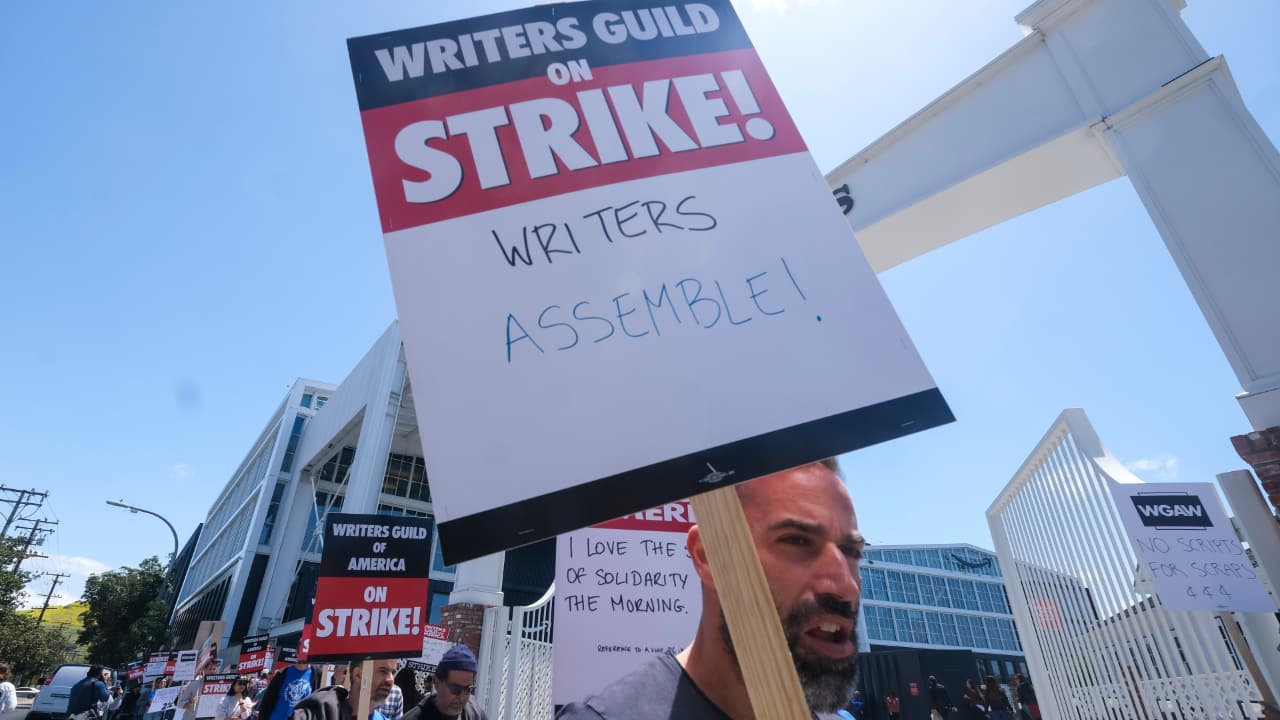
With the Writers Guild of America (WGA) strike now in its second week, here’s a quick look at its history of industrial action and the rights its won for its members along the way.
Everyone remembers the last Writers Guild of America (WGA) strike in 2007/2008, partly as the only thing that has disrupted the industry as much in recent decades is the Covid-19 pandemic. Shows were shortened, postponed, or even cancelled entirely, audiences shrank, and the whole thing ground on for 100 long, long days before the dispute was finally settled.
The gains for WGA members were decent though. The Minimum Basic Agreement (MBA) was expanded to new media; and residuals for reuse on new media platforms, including digital downloads and use on ad-supported internet services, was included for the first time. In short, the writers got money for most of the new stuff that they were doing that they weren’t being paid fairly for.
History repeats itself...
The bad news when it comes to looking at the current strike is that the issues seem to be way more intractable than they did in those pre-Netflix days. As ever it boils down to the same key demand of fair pay, with the WGA pointing out that relative pay for writers has actually decreased around 14% and counting in recent years due to inflation (a common argument in labour disputes worldwide at the moment).
You can have a look at its full list of demands here, but the tl;dr of it all is this: streaming platforms need to pay more and pay fairly, especially when it comes to residuals (half of writers are now receiving the minimum compensation for their jobs compared with only a third a decade ago), and the use of material produced by AI needs to be regulated.
11,000 writers are on strike, the picket lines are getting noisier, global support is rolling in (the UK-based Writers’ Guild of Great Britain has advised members to stop working on any projects that might be considered as under WGA jurisdiction), and other unions such as Equity are getting involved. And there seems to be little movement — nor love lost — between the WGA and the trade body representing the studios, broadcasters and streamers it negotiates with, the Alliance of Motion Picture and Television Producers (AMPTP). It is, in other words, getting messy
A history of WGA action
So, what does history tell us about how this strike might progress. Here’s a brief history of WGA action.
1953 - The Screen Writers Guild (SWG), a predecessor of the Writers Guild of America West, strikes for 13 weeks. Gains included the first residuals for reuse of made for television product, with payments for up to five reruns; sequel payments in television for creators of original works; control of credits in television; and minimum compensation.
1960 - After a 22-week strike gains included the first residuals for theatrical motion pictures, paying 1.2% of the license fee when features were licensed to television; an independent pension plan; and a 4% residual for television reruns, domestic and foreign.
1973 - A four month strike saw, amongst other things, the establishment of a 1.2% payment of distributor’s gross receipts on videocassette sales and pay television, anticipating the future emergence of these means of distribution. 50 years on, similar arguments are necessary.
1981 - 13 week strike. Gains included terms for made-for-pay television programs and improvements on payments for cable channel content.
1986 - 22 weeks and, to date, the longest strike in the Guild’s history. Improvement in payments and residuals.
2007/2008 - The 100 day strike. Gains as listed earlier above.
2023 - Who knows…but it looks like it could be a long one.
For the latest on the strike, US trade magazine Variety has an excellent dedicated section featuring all the latest news. You might be refreshing it for a while, however. Here’s the view of one expert commentator and WGA member, the novelist George R.R. Martin, who has given the WGA his full and complete and unequivocal support.
“Maybe the AMPTP members will come to their senses tomorrow and offer some meaningful concessions, and the whole thing can be wrapped up next week. I would not bet the ranch on that, however,” he wrote in a recent blog post.
“I have been through several of these since I first started writing for television and film in 1986. The 1988 strike, the first I was a part of, lasted 22 weeks, the longest in Hollywood history. The 2007-2008 strike, the most recent, went for 100 days. This one may go longer. The issues are more important, imnsho, and I have never seen the Guild so united as it is now.”
Tags: Production


Comments